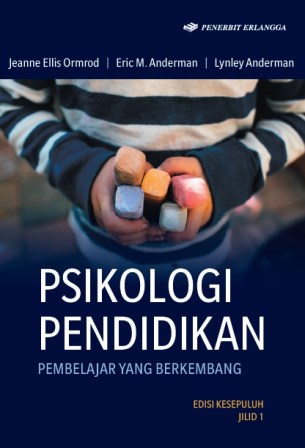

Early Childhood Research Quarterly, 19, 167-172.Ĭasey, B. Storytelling sagas: An effective medium for teaching early childhood Mathematics. Engaging young children in Mathematics: Standards for early childhood Mathematics education, pp.
BUKU PSIKOLOGI PENDIDIKAN DALAM PENGAJARAN SERIES
Mathematics problem-solving adventures: A language-arts-based supplementary series for early childhood that focuses on spatial sense. Journal of Educational Psychology, 86(2):235-243.Ĭasey, B. Accelerating language development through picture book reading: Replication and extension to a videotape training format. Journal for Research in Mathematics Education, 35(1):5-33.Īrnold, D. Mathematical discourse in shared storybook reading. Raya Telang PO BOX 2 Kamal, Bangkalan, Jawa Timur 69162 Program Studi Pendidikan Guru Pendidikan Anak Usia Dini, Fakultas Ilmu Pendidikan This work is licensed under a Creative Commons Attribution 4.0 International License. Florida: Florida Literacy and Reading Excellence Center. Metode Penelitian Kuantitatif, Kualitatif, dan R & D.

Belajar dan Faktor-faktor yang Mempengaruhinya. Assesment of children: Behavioral science. Life Span Development: Perkembangan Masa Hidup, Edisi 5 Jilid 1. National Association for the Education of Young Children. The Essentials of Early Literacy Instruction. Enhancing Phonological Awareness, Print Awareness, and Oral Language Skills in Preschool Children. Qualitative, and Quantitative Approaches.

Tesis, Human Potential Performance Communication Disorders, Truman State University.

Parent Training of Print Referencing Behaviors During Shared Book Reading And Emergent Literacy Skills of Preschool Children. Executive Summary: Developing Early Literacy: Report of The National Early Literacy Panel. Wasik (Ed.), Handbook of family literacy (pp. Emergent literacy skills and family literacy. Maximizing the effectiveness of read-alouds. Early Childhood Special Education, 23(3), 99-113. Promising Interventions for Promoting Emergent Literacy Skills: Three Evidence-Based Approaches. American Speech-Language-Hearing Association. Language, Speech, And Hearing Services In Schools. Print Referencing: An Emergent Literacy Enhancement Strategy and its Clinical Applications. Applied Developmental Psychology, 27, 1-13.Įccles, J. The Relationship Between Social Behavior And Emergent Literacy Among Preschool Boys and Girls. Strategies fo Supporting Early Literacy Development: Young Exceptional Children. New York: Mcgraw Hill-Book Company.ĭennis, R. Training and Developmental Handbook A Guide to Human Resource Development. Joint book reading makes for success in learning to read: A meta-analysis on intergenerational transmission of literacy. Print-Referencing: A Key to Interactive Shared Reading. The effectiveness of this method can be significant because it is influenced by intrinsic and extrinsic motivation of trainees.īaker, C. Whereas the results of knowledge there is no significant difference. So it can be concluded that an effective training method print referencing to improve teachers skills ini teaching early literacy. From these results in significant differences between teachers skill in early literacy instruction before and after training. Analysis of the results obtaine by the value of significance (2-tailed) was 0,008 < 0,05. Observation result were analyzed with statistical data analysis techniques of non parametic wilcoxon signed rank test with test scores observation of teaching skills of the participants before and after training. Data obtained from interviews, observations before and after training, as well as teacher knowledge test. The training participants were 10 kindergarten teachers. Training in the use of this method of print referencing is donein an attempt to add the teaching skills of preschool teachers as facilitators of learning early literacy. This makes preschool teachers need to improve early literacy teaching skills. Through a training needs assessment result in mind that the skills and knowledge of teachers TK about teaching early literacy in accordance with sub-optimal child development stages. Early childhood curriculum mention about early literacy teaching literacy in the form of recognition of letters and numbers in accordance with the stages of child development.


 0 kommentar(er)
0 kommentar(er)
